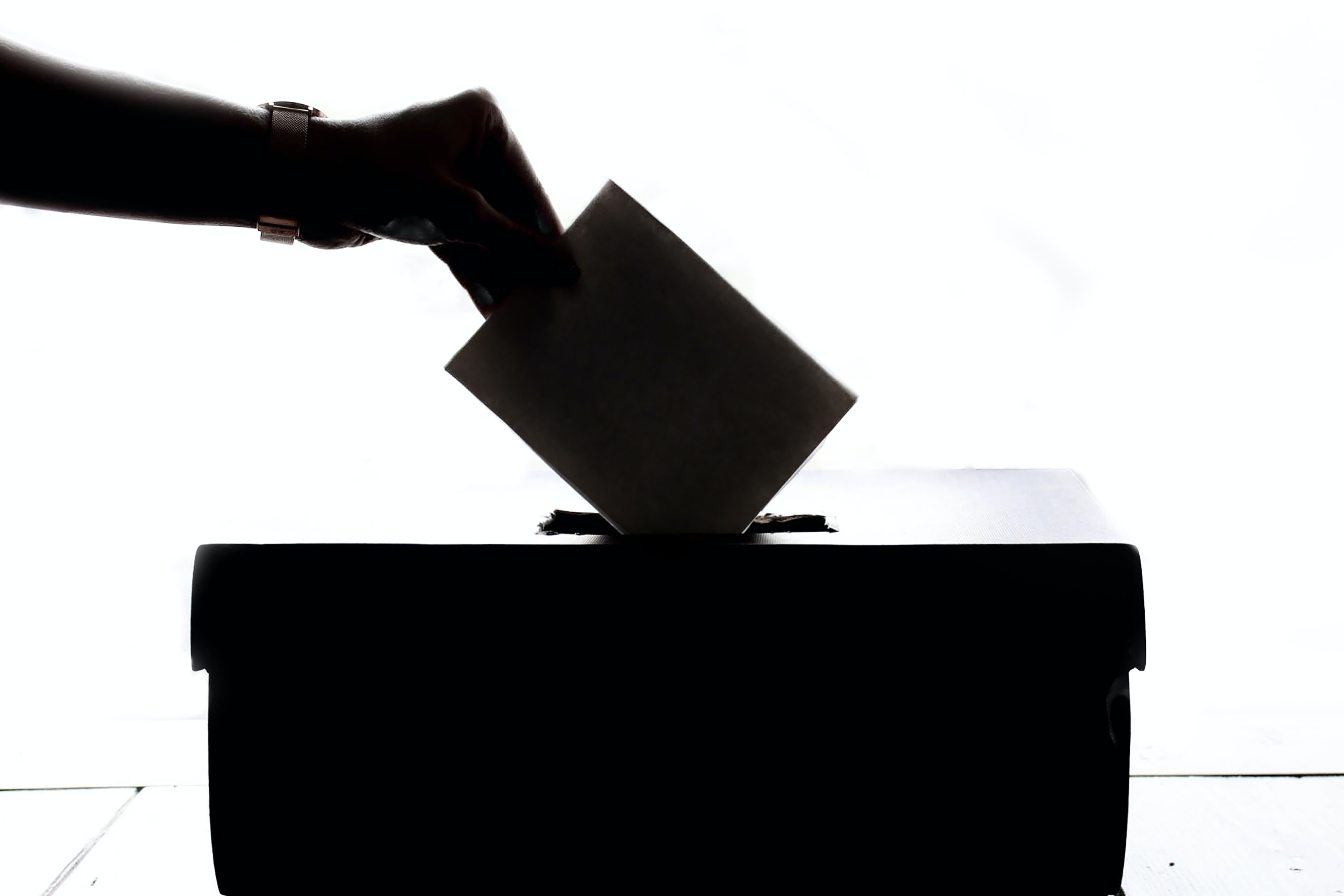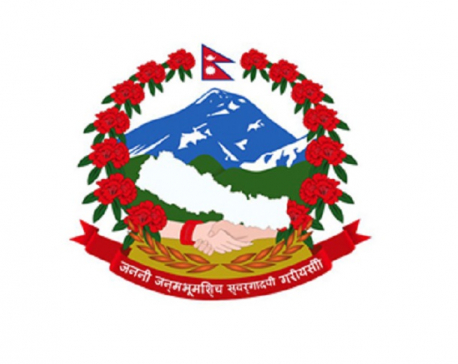
OR
#Opinion
Election Manifestos and Reformation of Government and Electoral System
Published On: November 13, 2022 03:00 PM NPT By: Rajendra Bahadur Singh

The proclamation of election manifestos has become a ritualistic event that is never scrutinized after the political parties form the government, although this time the general public and the election analysts have aggressively been attacking the aims and agendas presented in the election manifestos of the political parties.
Most of the political parties contesting the upcoming elections have proclaimed their political and developmental agendas through their election manifestos. Proclaiming the agendas through election manifestos before a considerable time before the election is a general practice in all democratic countries across the world. Ideologically, it is assumed that political parties/leaders go to the people with their political and developmental aims and agendas to get them endorsed. That means the goals and objectives set in the election manifestos become the public promises made by the political parties/leaders. The endorsement of these agendas cannot be feasible by each individual person at a time. Therefore elections are held. When one casts one’s vote to any political party/leader, one is endorsing the goals and agendas of that particular political party/leader.
On the basis of this political thought, the political parties/leaders should be guided by these aims and agendas in the manifestos if they got success to form the government; when they formulate and execute any policies and plans, the provisions set in the manifestos should be taken into consideration because they had made public promises to incorporate them before the election. Even if the political parties which cannot form the government or can’t become a party to a coalition government, they also always make endeavors to endorse their aims and agendas in all policies and plans of the government by creating a compelling environment through the intervention of lobby and advocacy.
In our context, proclamation of the political manifestos has become a ritualistic event that is never scrutinized after the political parties form the government, although this time the general public and the election analysts have aggressively been attacking the aims and agendas presented in the election manifestos of the political parties; they are arguing that the developmental agendas and political guidelines presented in the manifestos are baseless and irrational; they do not reflect the social realities, and priorities of the nation. Equally, they have also been commenting that the formulation, and proclamation of the developmental agendas in the manifestos on irrational grounds have become a common trait of the political parties in the country.
This trait has, in turn, reinforced the thinking that the agendas of the federal government system, secularism, and principles of inclusions were not the needs, and the mandates expressed through the Peoples’ Movement-II although the political party leaders decisively endorsed them in the Constitution of Nepal, proclaimed in 2015, simply in a whim; these agendas were imposed, and endorsed by a handful of leaders; the agendas were not home-grown but imported; neither were these agendas aligned with the social realities, needs, and national priorities. They criticize that the political parties and their leaders always do not take into account the national priorities, national interests and social realities while they set any developmental goals, and political guidelines.
The political parties have included various issues - big and small - in their election manifestos. Most political parties in mainstream politics have proposed to reform the government system, and electoral system of the country. These two important provisions, government system and electoral system comprise the basic structure of any constitution across the world. In fact, when the government system is changed, the spirit/structure of the constitution is also changed. Maoists’ insurgency, and Peoples’ Movement-II were not basically, for the political and civil rights of the people; rather, they were, in fact, for the reformation of the government system, and electoral system.
If you make a general comparison between the Constitution of Nepal and the Constitution of the Kingdom of Nepal, the difference lies between these constitutions only in the ambit of the government system, and electoral system. Other constitutional provisions are more or less the same in both constitutions. In the same strain, the electoral system is not only an electoral process and the formation of the government; it rather affects the process of the formation of the government resulting from the changes in the structures and mechanisms of the government. They are therefore an integral part of the constitution. The Constitution of Nepal has set these provisions as its basic structure.
If political parties and their leaders intend to reform the government system and electoral system, then we can say that they want to change the basic structure of the existing constitution. The basic structure doctrine is that the constitution of a sovereign state has certain characteristics that cannot be erased or amended by its legislature. The Constitution of Nepal has recognized this doctrine of basic structure in its Preamble. The provisions of government systems, and electoral systems enshrined in different articles in the Constitution of Nepal are some basic structures or basic characteristics of the constitution. Therefore the question is readily raised that how can the political parties lobby for the reformation of the electoral system and amendment to the government system?
The constitutional provisions have yet to be fully implemented. The peace process started in 2006 has not yet been concluded. The political parties in mainstream politics are still led by the elites. Therefore, the political parties and their leaders have to be much conscious when they set the developmental priorities and political nuisances while they set the political agendas. Proposition on reformation of government system and electoral system could be unproductive; it may again create political instability. No government system and electoral system can be flawless. Every system has some inherent shortcomings. We should not forget that these systems were introduced in the constitution after a series of discourse and dialogue, search and research. Hence, it is too early to propose the reformation of the government system, and electoral system of the country.
The Constitution of Nepal has adopted the principles of inclusion and diversity, as well as the principle of inclusive representation. Many provisions in the constitution reflect these principles. These reflections can be materialized by enacting legal provisions, which will aid the development of the country's inclusive democracy. The time to reconsider the reformation of the government system and electoral systems has not matured enough because it is the second election since the promulgation of the Constitution of Nepal in 2015. Therefore, it is premature to propose reforming the country's government and electoral systems. This proposition could have a negative impact on the political stability of the country; it could also be counterproductive for the execution of the constitutional provisions.
You May Like This

Ensure Effective Governance and Rule of Law to Contain Potential Chaos
Tuesday's meeting of top leaders of the major political parties at Singha Durbar brought to light a growing concern that... Read More...

Political Space for Youths
The political space for youths is going to contract further in South Asia including Nepal until and unless the senior... Read More...





Just In
- MoHP cautions docs working in govt hospitals not to work in private ones
- Over 400,000 tourists visited Mustang by road last year
- 19 hydropower projects to be showcased at investment summit
- Global oil and gold prices surge as Israel retaliates against Iran
- Sajha Yatayat cancels CEO appointment process for lack of candidates
- Govt padlocks Nepal Scouts’ property illegally occupied by NC lawmaker Deepak Khadka
- FWEAN meets with President Paudel to solicit support for women entrepreneurship
- Koshi provincial assembly passes resolution motion calling for special session by majority votes







_20220508065243.jpg)






Leave A Comment